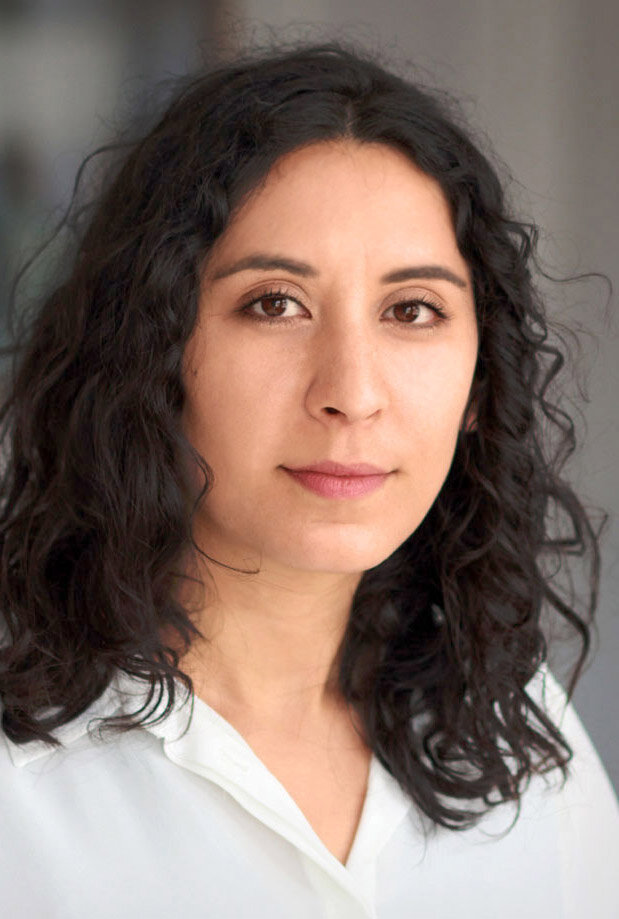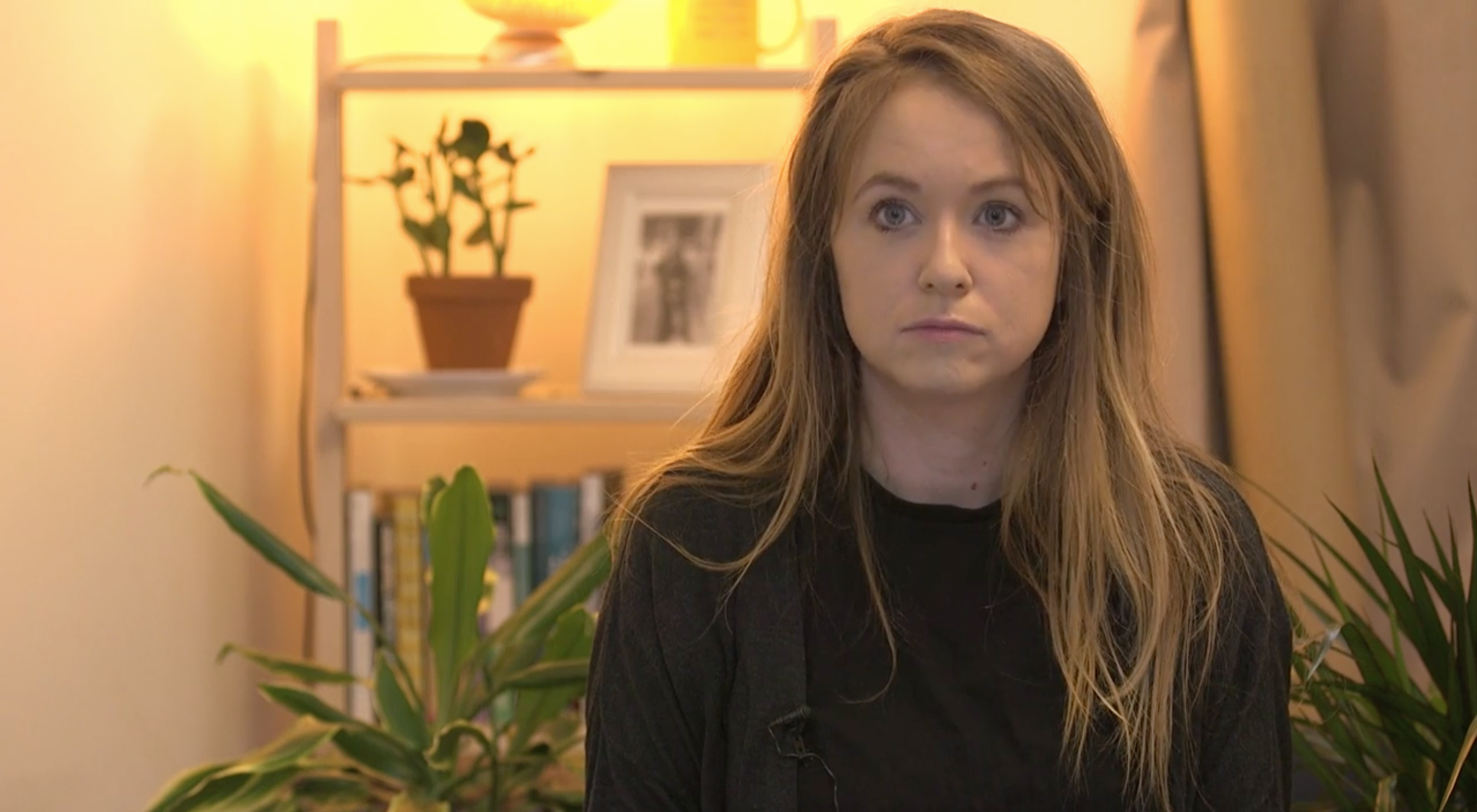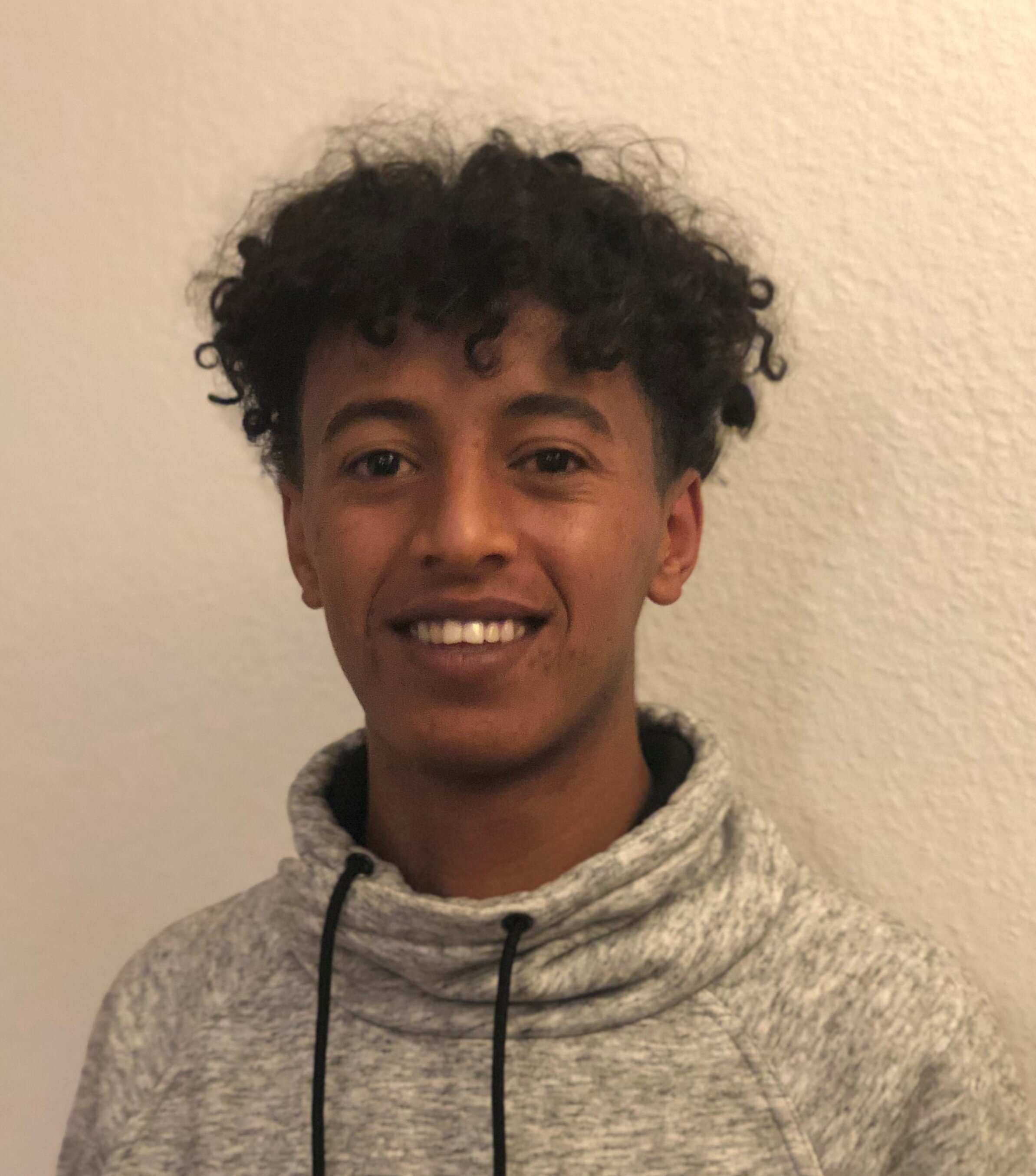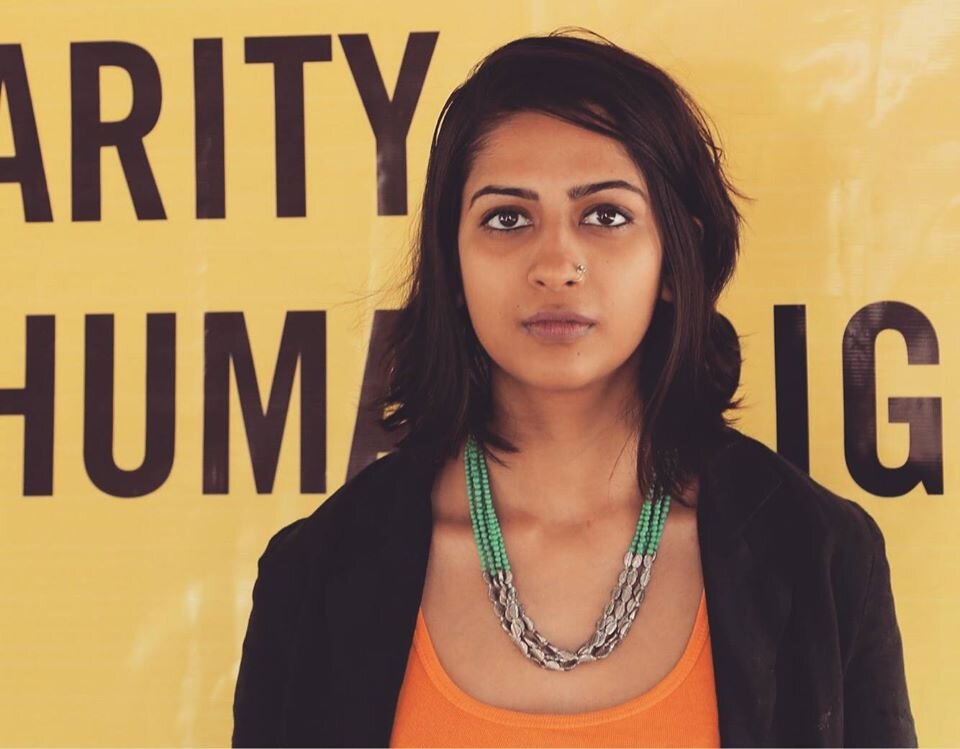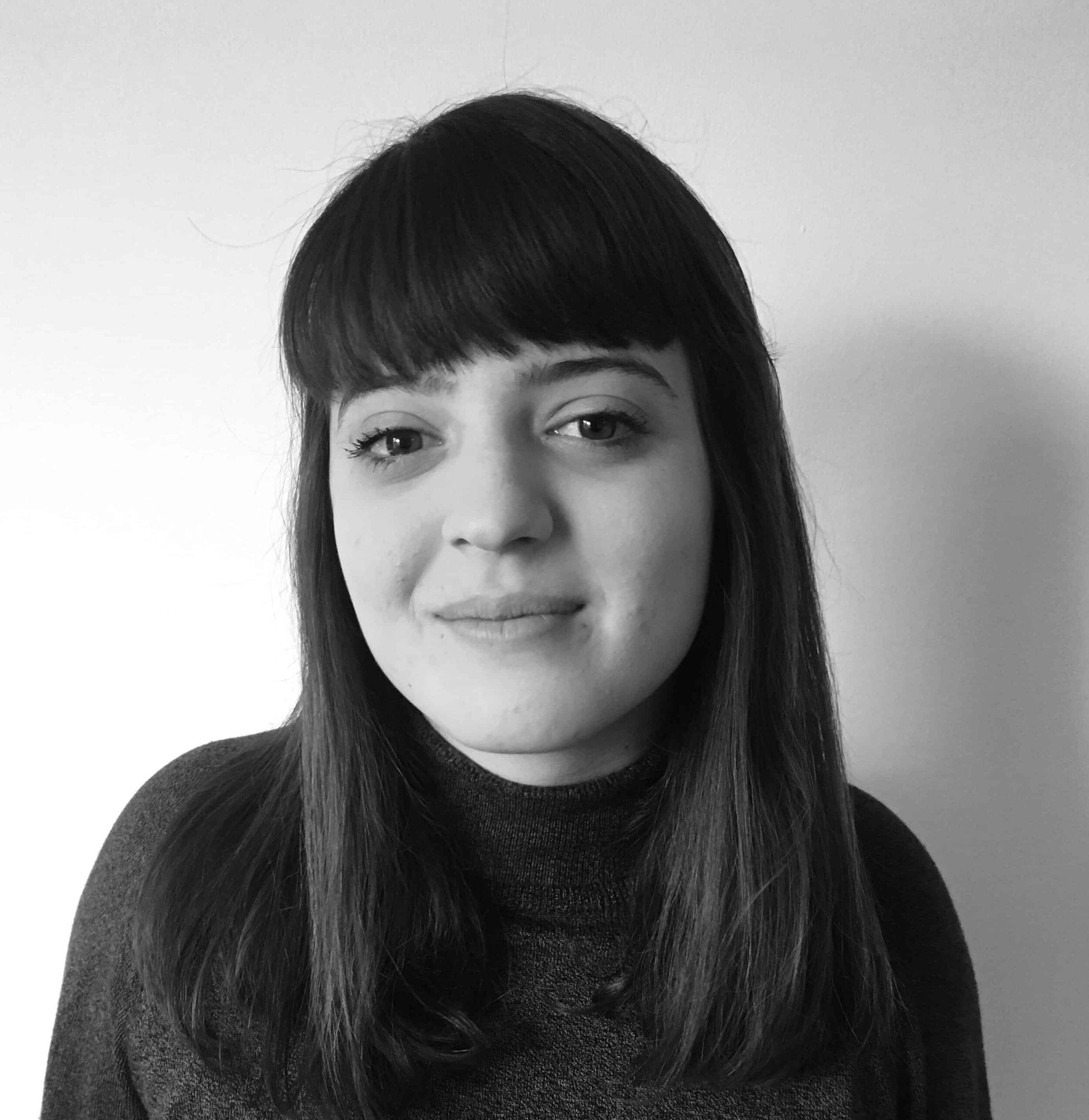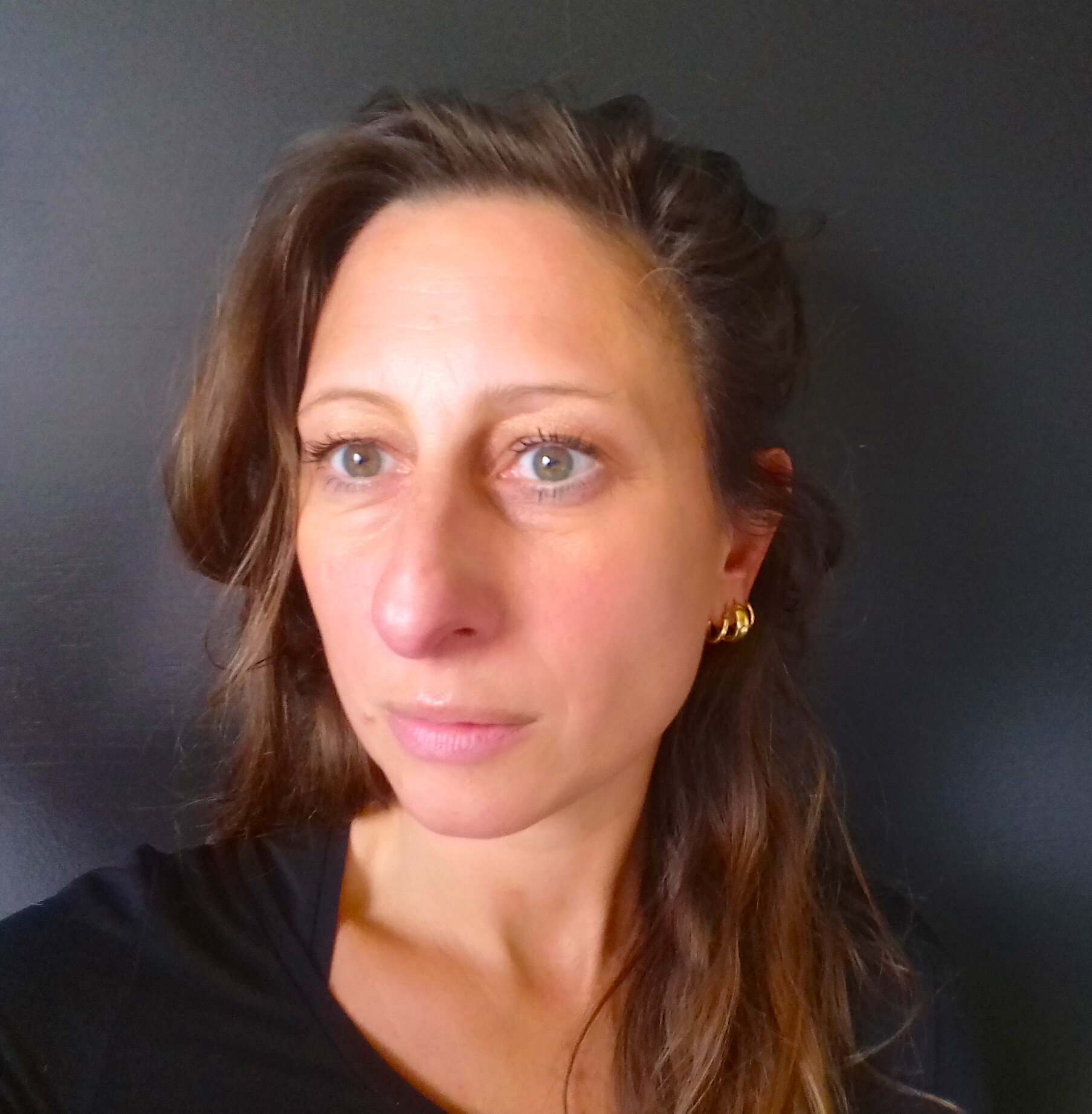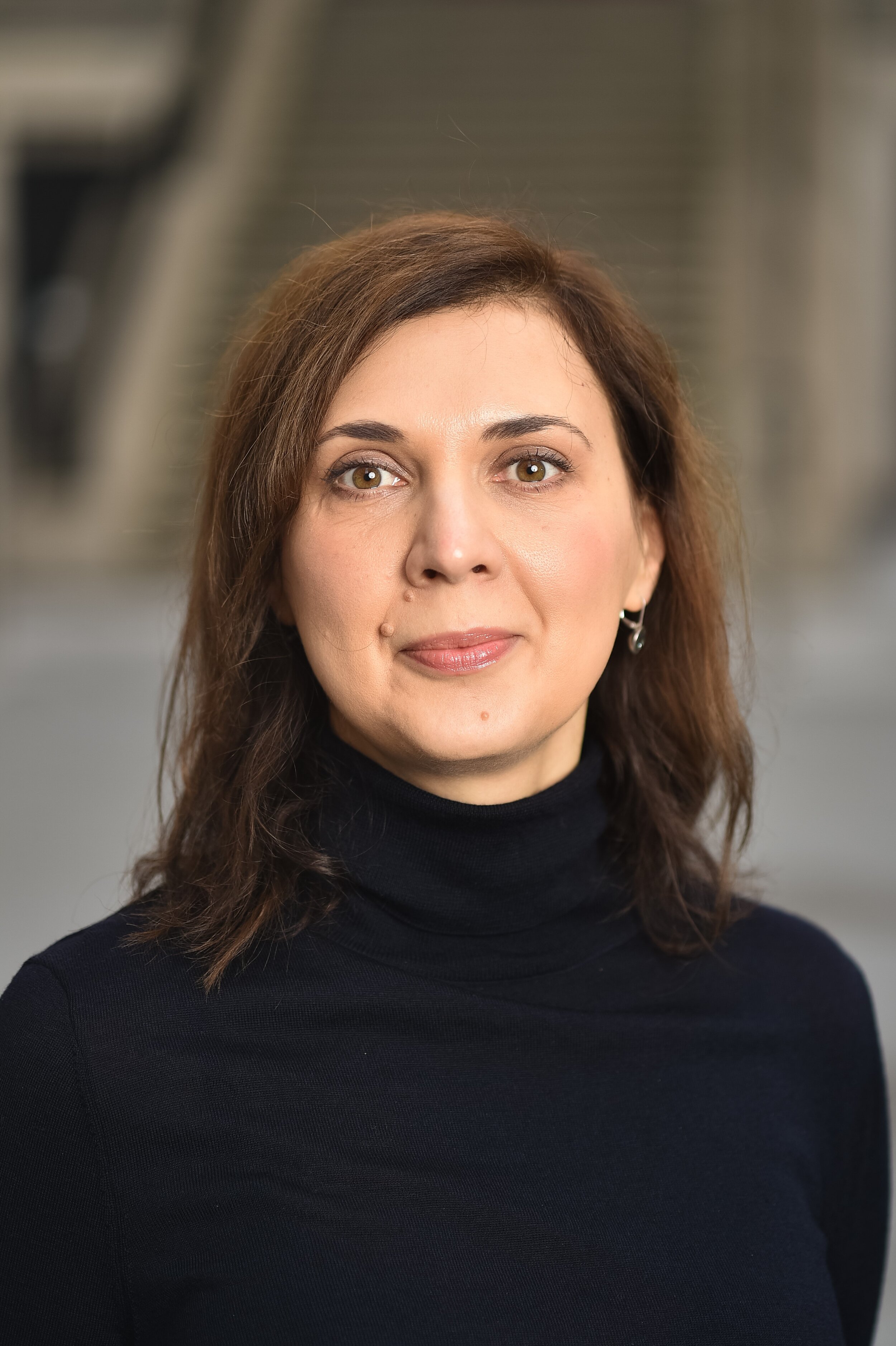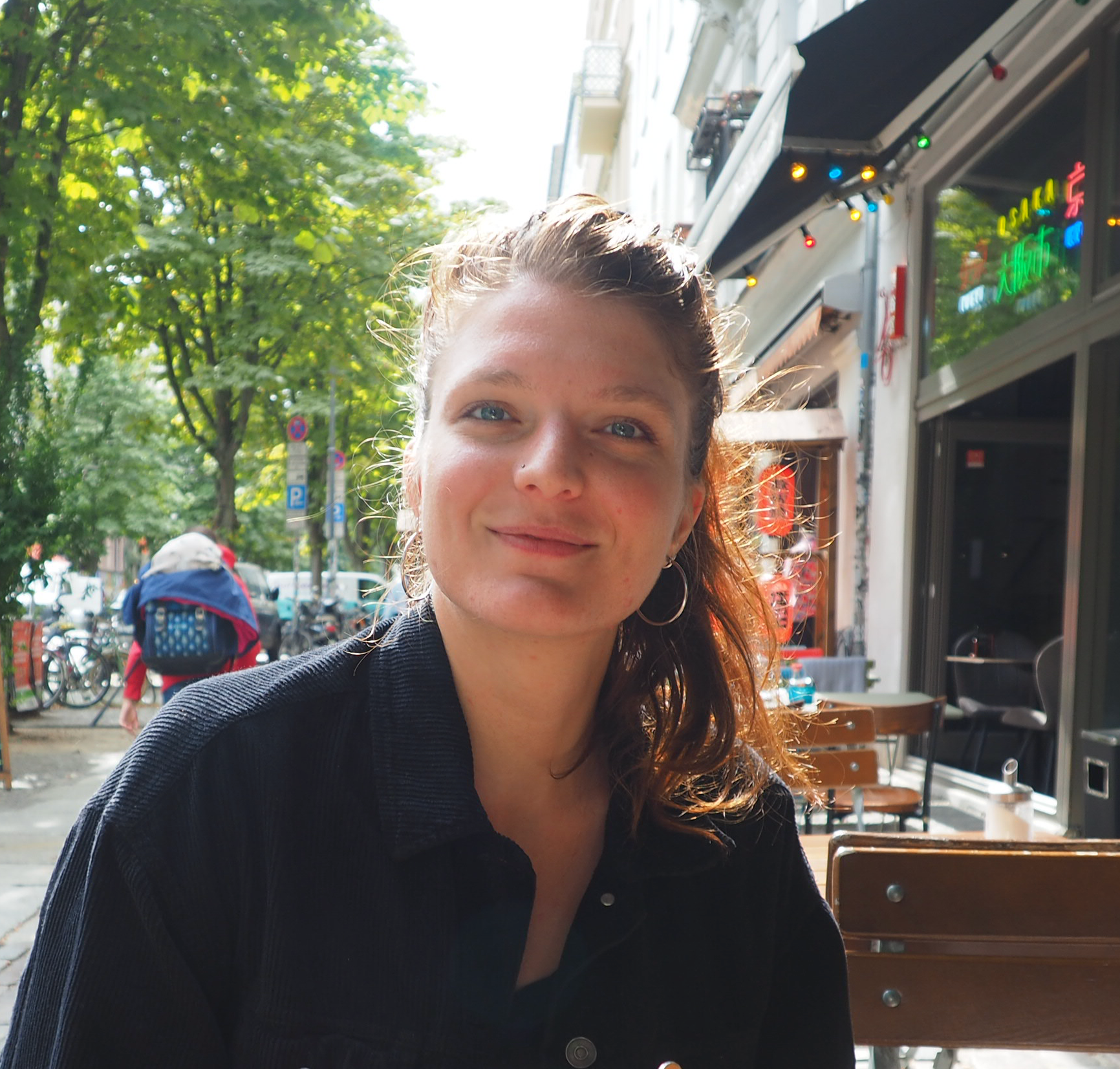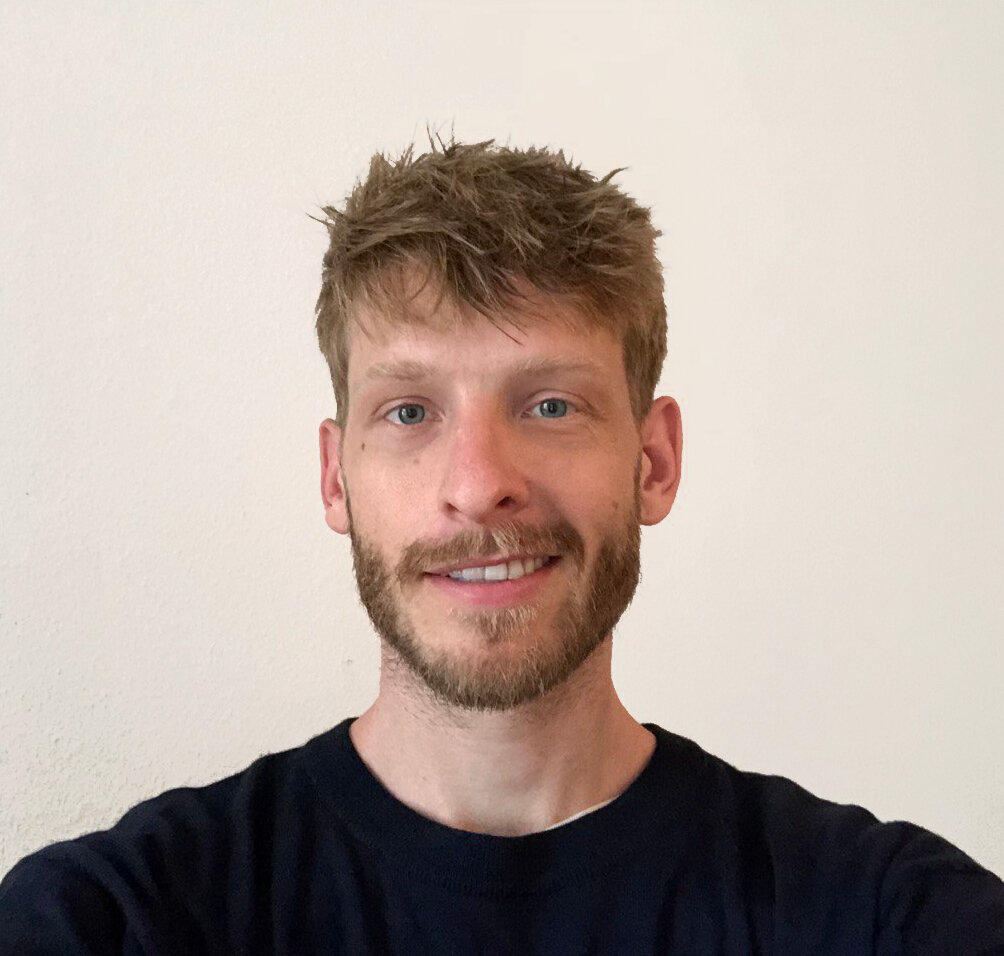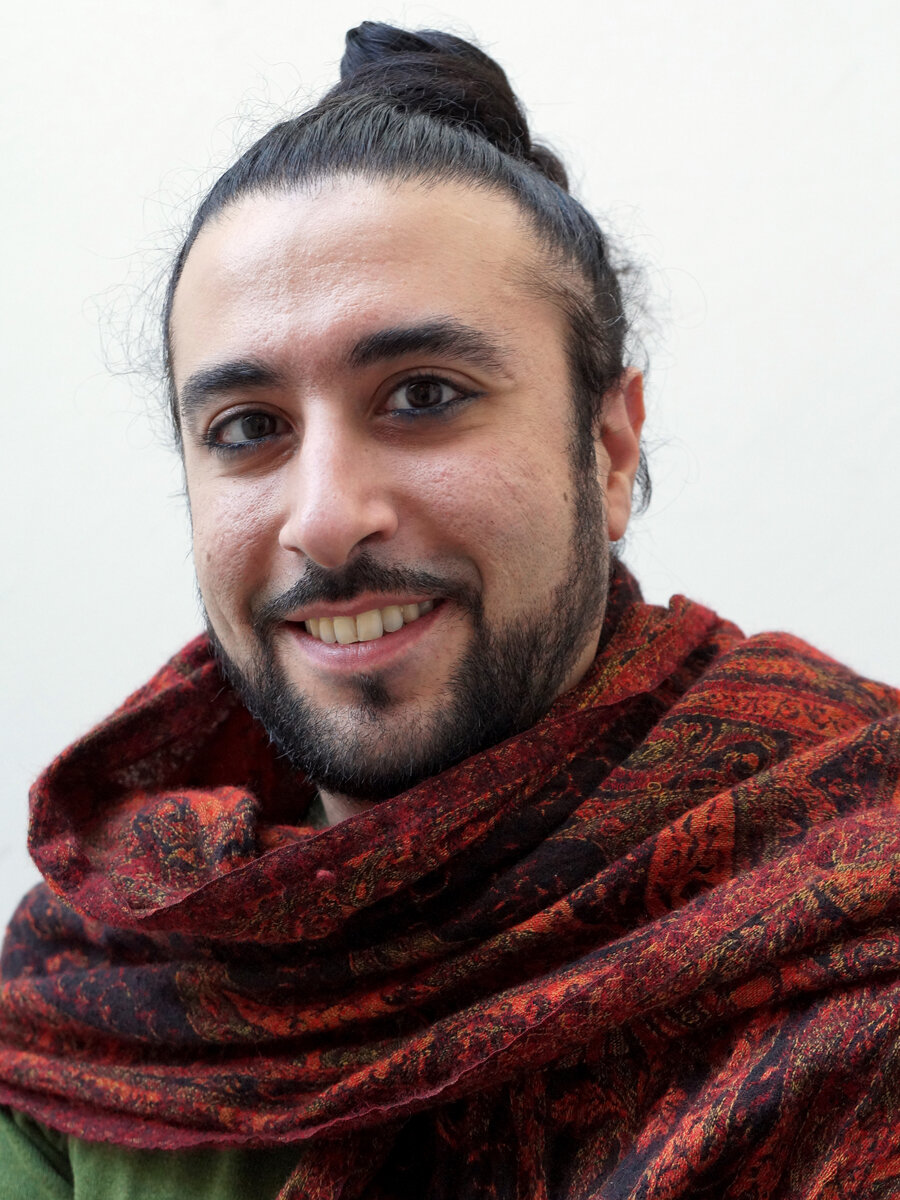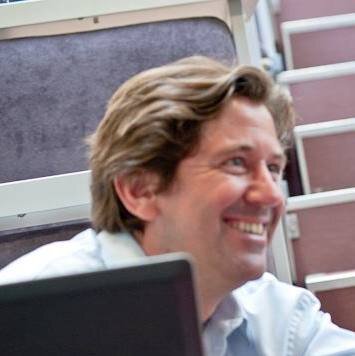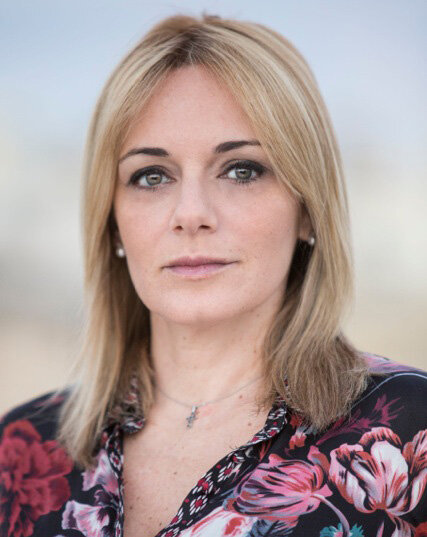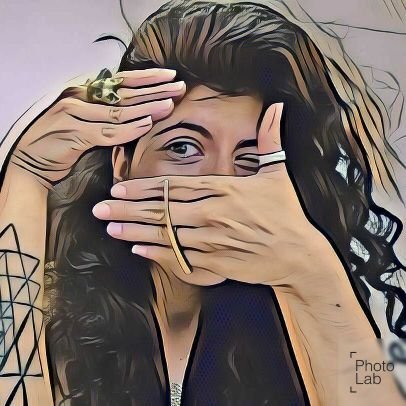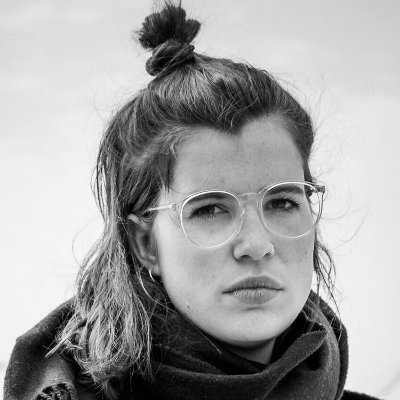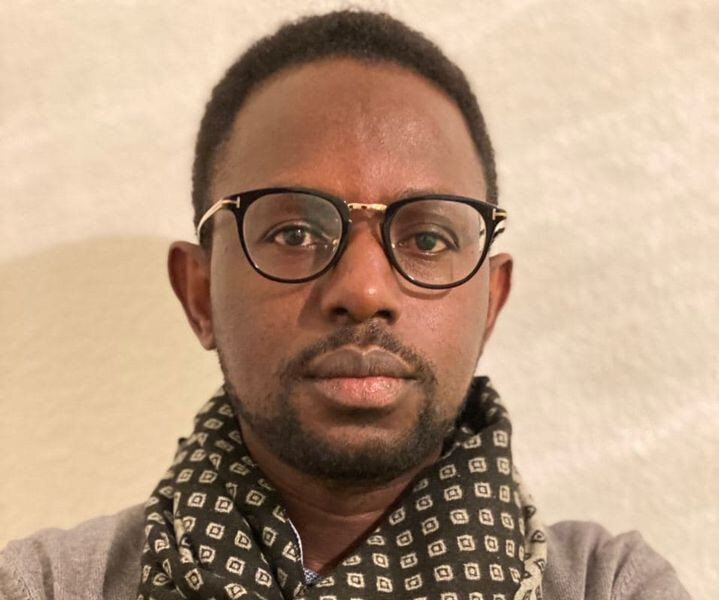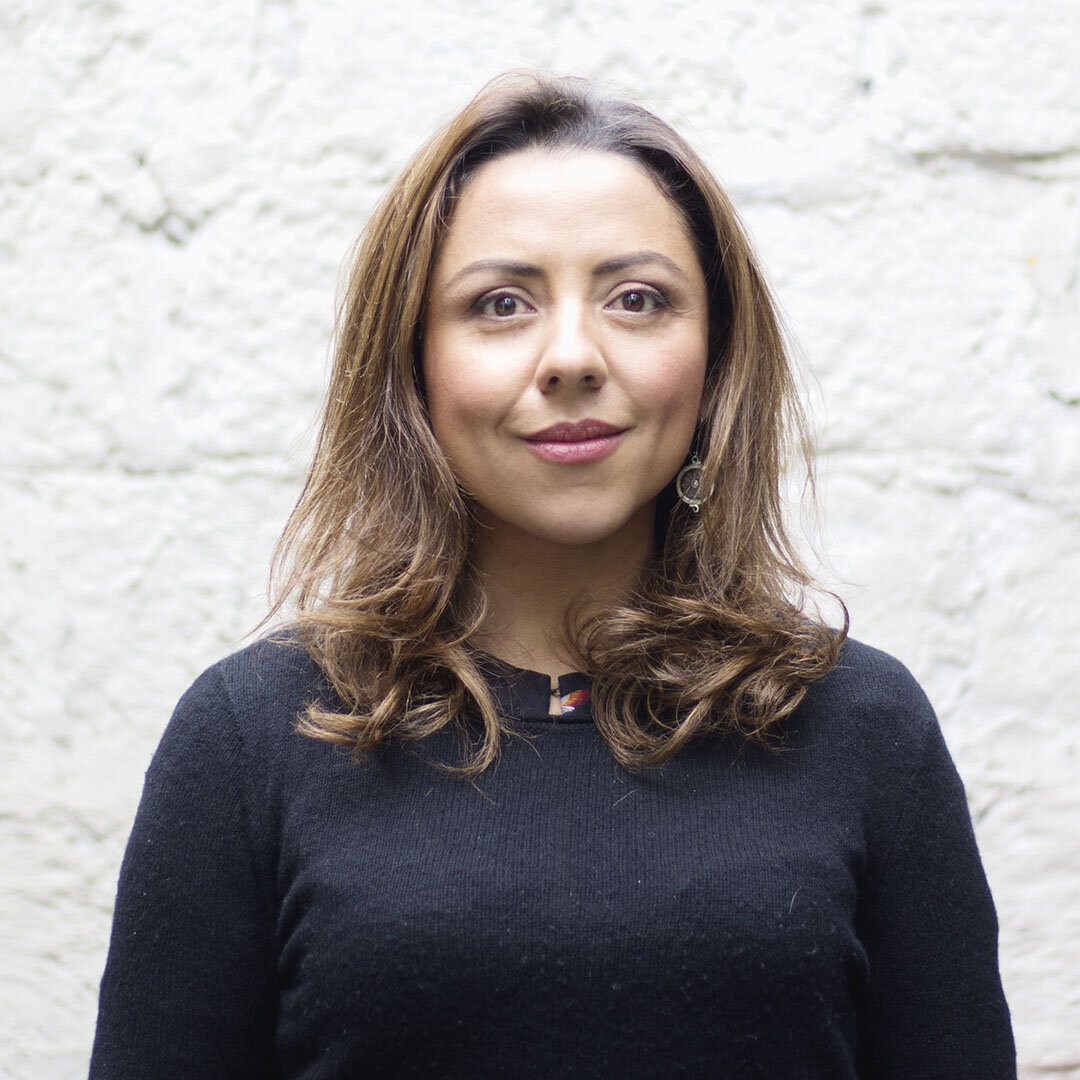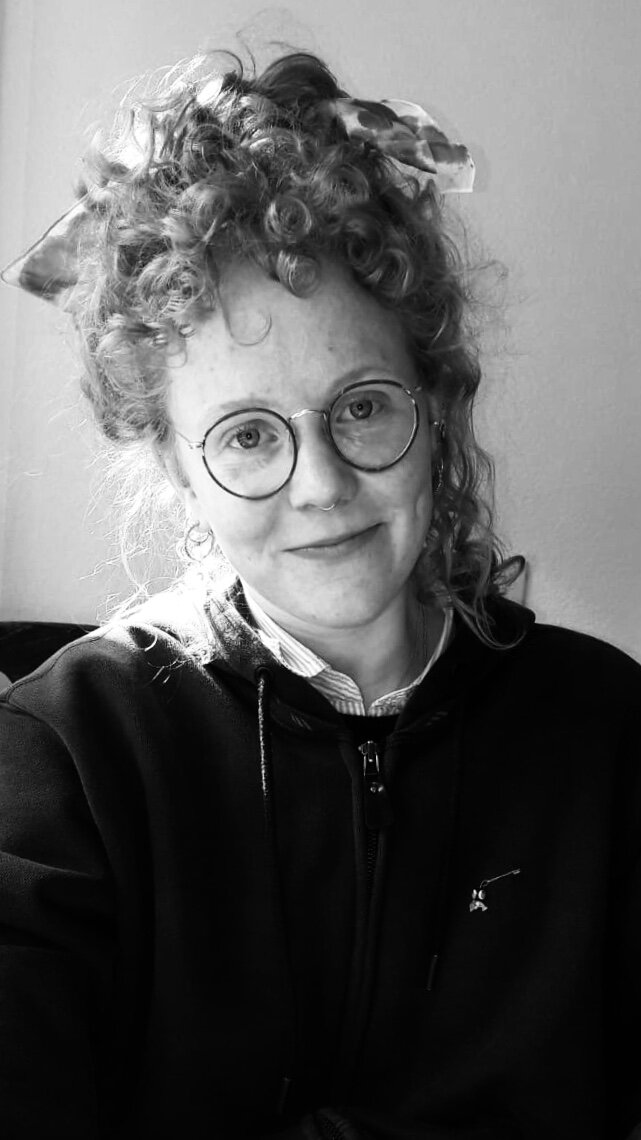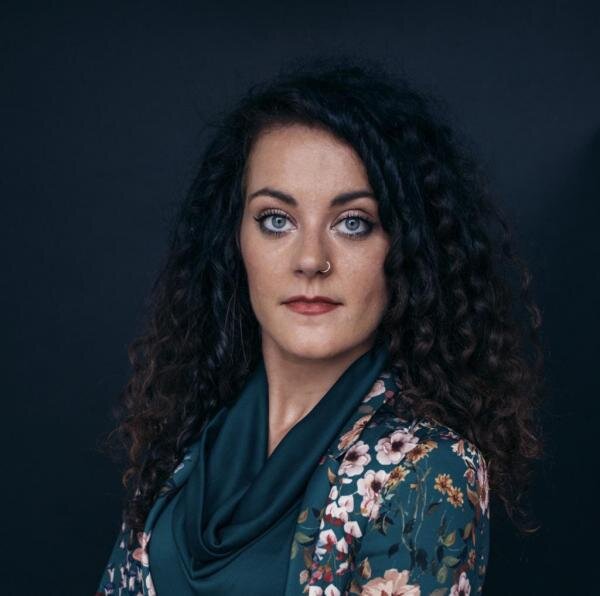#DNL21 · STREAMING Nov 27—29 · 2020:
BORDERS OF FEAR
MIGRATION, SECURITY & CONTROL
Tactics of Empowerment – Part 3
The 21st conference of the Disruption Network Lab
Live from Studio 1, Kunstquartier Bethanien – Berlin
Journalists, activists, advocates, lawyers, researchers and critical thinkers unveil the persecution, control, and cultural violence around borders & migration
Curated by Tatiana Bazzichelli
streaming Live from Studio 1, Kunstquartier Bethanien, Berlin
Back to top
LIVESTREAM SCHEDULE
Friday, November 27 · 2020
16:00—16:10 · OPENING
16:10—16:30 · SHORT FILM: Best of Luck with the Wall + TALK
Short Film by Josh Begley (Artist & Filmmaker, First Look Media / The Intercept / Field of Vision, US) & Talk by Renata Avila (Lawyer, Author & Advocate, GTM).
16:30—18:00 · PANEL: Migration, Failing Policies & Human Rights Violations
Sally Hayden (Freelance Investigative Journalist and Photographer, IE), Philipp Schönberger (Coordinator, Refugee Law Clinic Berlin on Samos, ihaverights.eu, DE), Franziska Schmidt (Coordinator, Refugee Law Clinic Berlin on Samos, ihaverights.eu, DE). Moderated by Roberto Perez-Rocha (Director for the International Anti-Corruption Conference Series at Transparency International, MEX/DE).
18:00—18:45 · BREAK
18:45—20:15 · PANEL: Illegal Pushbacks and Border Violence
Hanaa Hakiki (Legal Advisor, ECCHR Migration Program, DE), Nicole Vögele (Filmmaker and Reporter, CH), Dimitra Andritsou (Forensic Architecture Borders Programme, GR/DE). Moderated by Likhita Banerji (Human Rights & Technology Researcher, Amnesty International, IN/DE).
Saturday, November 28 · 2020
16:00—16:10 · INTRO
16:10—16:30 · INVESTIGATION: Technological Testing Grounds
Petra Molnar (Lawyer & Researcher, Refugee Law Lab, European Digital Rights EDRi, CA/GR)
16:30—17:30 · CONVERSATION: The Journey of Refugees from Africa to Europe
Yoseph Zemichael Afeworki (Student, ERI/ETH/LUX), Ambre Schulz (Project Manager, Passerell, LUX). Moderated by Sally Hayden (Freelance Investigative Journalist and Photographer, IE)
17:30—18:15 · BREAK
18:15—19:45 · PANEL: Politics & Technologies of Fear
Gaia Giuliani (Permanent Researcher, Centro de Estudos Socias /CES, University of Coimbra, IT/PT), Claudia Aradau (Professor of International Politics, Department of War Studies, King’s College London, UK), Joana Varon (Founder at Coding Rights, Tech and Human Rights Fellow at Harvard Carr Center, BR). Moderated by Walid El-Houri (Researcher, Journalist & Filmmaker, Lead Editor at openDemocracy, LBN/DE).
19:45—20:00 · CLOSING
Sunday, November 29 · 2020
16:00—17:30 · COMMUNITY PANEL: Creating Safe Passages
Thomas Kalunge (Strategy advisor/Agile Project Manager, Migrant Media Network / r0g_agency, KE/DE), Regina Catrambone (Co-founder and Director of MOAS - Migrant Offshore Aid Station, IT/MLT), Mattea Weihe (Cultural Mediator, Sea-Watch e.V., DE). Moderated by Michael Ruf (Writer & Director, DE).
Back to top
COMMUNITY WORKSHOPS
Sunday, November 29 · 2020
11:00—14:00 · WORKSHOP @SUPERRR LAB, Oranienstr. 58a
Critical Tools for Counter Investigations - a workshop by Forensic Architecture
With: Dimitra Andritsou (Forensic Architecture Borders Programme, GR/DE). Read more & register
Tuesday, December 1 · 2020
19:00—22:00 · WORKSHOP @ACUD Macht Neu, Veteranenstr. 21
Migration, Technology and Data Protection - a workshop with the Migrant Media Network
With: Migrant Media Network (r0g_agency, DE). Read more & register
Pre-Events & Meetups
Funded by: Senatsverwaltung für Kultur und Europa (Senate Department for Culture and Europa, Berlin), Bundeszentrale für politische Bildung, The Reva and David Logan Foundation (grant provided by NEO Philanthropy), Checkpoint Charlie Foundation. Supported [in part] by a grant from the Foundation Open Society Institute in cooperation with the OSIFE of the Open Society Foundations.
Part of Re-Imagine Europe, co-funded by the Creative Europe programme of the European Union.
In partnership with: Guerrilla Foundation
In collaboration with: Transparency International, R0G_Agency, Migrant Media Network, Emergency
Partner Venues: Kunstraum Kreuzberg/Bethanien, ACUD Macht NeU
Media Partners: taz die tageszeitung, ExBerliner,
Il mitte, Furtherfield
In English language.
Introduction
BORDERS OF FEAR
MIGRATION, SECURITY & CONTROL
Tactics of Empowerment – Part 3
Journalists, activists, advocates, lawyers, researchers and critical thinkers unveil the persecution, control, and cultural violence around borders & migration.
BORDERS OF FEAR aims to shed light on wrongdoing in the context of migration by investigating the reasons and practice of rising borders and walls, leading to cultural and physical violence, persecution and human rights violations. The conference focuses on the discourse of borders both at a concrete level, and as a strategy of cultural violence on the part of right-wing propaganda. On the one hand, we analyse the closure of frontiers, creation of refugee camps, escalation of security; on the other hand, we investigate how border policing and the datafication of society are affecting the narrative around migrants and refugees in Europe and the west.
“Technical definitions, concepts and categories of migrants and migration are necessarily informed by geographic, legal, political, methodological, temporal and other factors.”
World Migration Report 2020
The terms “refugee”, “asylum-seeker” and “migrant” are used to describe people who are on the move, who have left their countries and have crossed borders, as defined by Amnesty International. Each category is treated differently by the law; however, many people who do not fit the legal definition of a refugee could be in danger if sent back home. For BORDERS OF FEAR we have decided to focus on the general terms of migration in relation to human right abuses and cultural violence, although we are conscious that legally there are specific differences.
The language used in the media to describe migrants, refugees and asylum seekers often blurs the line between those leaving their countries for economic betterment and those forced to leave to protect themselves and their families from war, conflicts and destruction of their countries of origin. Our perception of the situation in these diverse countries — be it North Africa, the Middle East or world wide — and the depiction of these people is heavily influenced by geopolitical strategies, financial plans, and the white Western perception of the diverse, unfamiliar and “the other”.
Brexit and other political developments have shown how the arrival of a relatively large number of migrants in areas that historically experienced low levels of immigration also makes it easier for populists to steer the debate and to claim immigration as the cause of social failure and declining standards of living, while more complex explanations of the often very different causes of the problems are drowned out by xenophobia.
Alongside, anti-immigration propaganda legitimises the construction of walls, the escalation of security, and forms of surveillance and controls at borders and frontiers. Cultural and physical borders become the context of discrimination, human rights abuses, violence and justification of pushbacks or detention centers, where people are locked away for years or are exploited by traffickers.
BORDERS OF FEAR brings together journalists, activists, media experts, lawyers, researchers and critical thinkers to unveil persecution, control, and cultural violence in relation to refugees and to people with a migration background. Furthermore, we want to hear directly the voice of the migrants and refugees themselves, to reflect collectively on forms of social justice in search for a deeper political awareness.
Curated by Tatiana Bazzichelli.
Back to top
COMMUNITY PANEL & WORKSHOPS
The Activation community programme extends the Borders of Fear conference with a closing activist panel on Sunday 29 November, as well as two community workshops on Sunday 29 November and Tuesday 1 December. Following up on Disruption Network Lab’s year-round meetup programme, the community programme, with speakers from the Migrant Media Network, Forensic Architecture, Sea-Watch e.V. and MOAS - Migrant Offshore Aid Station, continues and broadens the discussion started during the pre-events.
How do we ensure safer migration options, and share reliable information and create awareness around migration issues? Is it possible to implement innovative technology in migration management responsibly and with respect for human dignity and lives? And which critical tools can we use to work on counter investigations in our demand for justice and accountability?
Curated by LIEKE PLOEGER.
Full programme
Friday, November 27 · 2020
16:00—16:10 · OPENING
Tatiana Bazzichelli (Artistic Director & Founder, Disruption Network Lab, IT/DE) & Lieke Ploeger (Community Director, Disruption Network Lab, NL/DE).
16:10—16:30
SHORT FILM: Best of Luck with the Wall + TALK
Short Film by Josh Begley (Artist & Filmmaker, First Look Media / The Intercept / Field of Vision, US) & Talk by Renata Avila (Lawyer, Author & Advocate, GTM).
Best of Luck with the Wall is a voyage across the US-Mexico border, stitched together from 200,000 satellite images (October 2016, USA).
Data artist and web developer Josh Begley, together with a team of collaborators collected 200,000 satellite photographs of the border between the U.S. and Mexico and presented them as a single and continuous aerial tracking shot from the Pacific to the Gulf of Mexico. Thinking about a wall as a border brought into 3D relief, the short film Best of Luck with the Wall is a snapshot of a process of looking, and of understanding the geography of borders. The simplicity of the film insists on seeing the actual geography, the vast landscape that in the political narrative gets reduced to slogans about building a wall.
In the context of Donald Trump’s administration, the plan of constructing the wall at the border between the U.S. and Mexico has become a metaphor of anti-immigration policy. Although what Donald Trump has actually built is far from what he promised at the start of his 2016 election campaign (reduced from 2,000-mile length to "substantially more than 500 miles" by January 2021), his policy has resulted in a high number of families separated and children held in detention centres, asylum seekers being returned to Mexico, and a general reduction in refugee quotas. As reported by BBC news, any immigration from Muslim-majority countries, including Iraq, Somalia, Iran and Syria, fell almost to zero soon after he took office.
After the screening of the short film by Josh Begley, we will hear about these issues in a follow-up talk by Renata Avila, lawyer, author and advocate from Guatemala.
16:30—18:00
PANEL: Migration, Failing Policies & Human Rights Violations
Sally Hayden (Freelance Investigative Journalist and Photographer, IE), Philipp Schönberger (Coordinator, Refugee Law Clinic Berlin on Samos, ihaverights.eu, DE), Franziska Schmidt (Coordinator, Refugee Law Clinic Berlin on Samos, ihaverights.eu, DE). Moderated by Roberto Perez-Rocha (Director for the International Anti-Corruption Conference Series at Transparency International, MEX/DE).
This panel focuses on the topic of human rights violations and the responsibility of EU migrations policies, describing the scenario of two migration contexts, the route from Africa to Europe and the Greek hotspots.
Working on migration routes from Africa to Europe, Sally Hayden will speak about what she has learned from years of reporting. In particular, she has focused on the culpability and consequences of hardening EU migration policies, looking at what happens after European funding pays for boats of people to be intercepted and returned to Libya, and locked up indefinitely. She has also focused on the role of the UN, looking at accusations of corruption, mismanagement, and allegations that it is involved in whitewashing gross abuses that are happening there. Sally has just returned from Ethiopia, where she was reporting on the trials of smugglers Kidane Zekarias Habtemariam and Tewelde Goitom (nicknamed Welid), who are accused of holding tens of thousands of migrants and refugees for ransom in Libya.
In the context of the Greek hotspots, Philipp Schönberger and Franziska Schmidt will addressee the systematic human rights violations committed against migrants in the Greek hotspot on Samos as part of Europe’s deterrence policy - and the efforts of their work to challenge them, As Refugee Law Clinic Berlin, they have been offering independent legal information to asylum seekers on Samos since 2018. Created in 2016 to implement the EU-Turkey deal, the living conditions in the five Greek hotspots have been publicly denounced by civil society and numerous national and international actors for years. The calls for European solidarity and evacuation of the camps, however, have remained unheard and the situation only aggravated over the past years and months. While being widely described as a “failure” of the European Union, the situation cannot but be interpreted as a deliberate decision to use human suffering as means to deter migration – at the expense of the very idea of inalienable and universal human rights.
18:00—18:45 · BREAK
18:45—20:15
PANEL: Illegal Pushbacks & Border Violence
Hanaa Hakiki (Legal Advisor, ECCHR Migration Program, DE), Nicole Vögele (Filmmaker and Reporter, CH), Dimitra Andritsou (Forensic Architecture Borders Programme, GR/DE). Moderated by Likhita Banerji (Human Rights & Technology Researcher, Amnesty International, IN/DE).
This panel presents and investigates cases of pushbacks, illegal and violent expulsions at the borders that radically impact the lives of migrants. In September 2020, the Border Violence Monitoring Network (BVMN) documented 40 cases of pushbacks along the Balkan Route and in Greece. Pushbacks are a systemic consequence of the EU’s policy to limit access to asylum in EU countries. As a consequence, they have been carried out extensively at EU external and internal borders, including the Western Balkan, Greece, Poland, Spain, Italy, France and Switzerland. In carrying out these pushbacks, EU police forces and border authorities often subject migrants and refugees to physical violence. Politically, these pushbacks have been legitimated by EU member States and EU institutions. Legally, they mostly remain unsanctioned. One of the reasons is that they are very difficult to document due to physical and digital access restrictions, for example migrants' phones are often destroyed.
Hanaa Hakiki will bring her perspective as a lawyer working on pushbacks since 2014. Addressing the increasing tendency of governments to carry out pushbacks secretly and to then deny them taking place, she will give a brief overview of pushback practices in the last decade, and the obstacles limiting the number of cases that can be litigated and brought to justice.
Nicole Vögele will speak from her journalist perspective on her different reportages and journalistic investigations on pushbacks at the Croatian-Bosnian border, covering the actual making of evidence through her investigations, spending several months in the fields and forests to document the reality at the borders. Drawing on the difficulties and challenges in gathering and documenting visual evidence on illegal pushbacks,
Dimitra Andritsou will discuss how she and her colleagues at Forensic Architecture have worked on different, and often complementing, cases that report and unfold the widespread and systematic nature of these operations at the Evros/Meriç river, a natural barrier on the border between Greece and Turkey. She will explain how by employing different methodologies (media complex, fieldwork, 3D modelling, as well as situated testimony), they can develop means of evidentiary production and advance accountability for the violent and out-of-sight practice of pushbacks.
Saturday, November 28 · 2020
16:00—16:10 · INTRO
16:10—16:30
INVESTIGATION: Technological Testing Grounds: Migration Management Experiments & Reflections from the Ground Up
Petra Molnar (Lawyer & Researcher, Refugee Law Lab, European Digital Rights EDRi, CA/GR).
The detention of people at the border in every single case. The wrongful deportation of 7,000 foreign students accused of cheating on a language test. Invasive drone surveillance instead of maritime rescue. What do these examples have in common? In every case, technological experimentation had serious consequences for people’s lives. Petra Molnar will discuss her new report, Technological Testing Grounds, illuminated by photography by Kenya-Jade Pinto. This report is based on conversations with refugees and people crossing borders into Europe and highlights how states are increasingly experimenting with high risk migration management technologies. However, these experiments do not account for the far-reaching impacts on human rights and the lives of people on the move, including how this increasingly violent use of technology exacerbates systemic racism, surveillance of marginalized groups, and historical repression. The hubris of Big Tech and the allure of quick fixes do not address the systemic reasons that force people to migrate or why certain communities continue to be relegated to the margins. Whose perspectives matter when talking about innovation and which priorities take precedence? What does critical representation and meaningful participation look like – including the types of imagery that is used? Is there space for abolitionist conversations when it comes to technology at the border?
16:30—17:30
CONVERSATION: The Journey of Refugees from Africa to Europe
Yoseph Zemichael Afeworki (ERI/ETH/LUX), Ambre Schulz (Project Manager, Passerell, LUX). Moderated by Sally Hayden (Freelance Investigative Journalist and Photographer, IE).
Yoseph Zemichael Afeworki has first-hand experience of making the dangerous journey from the Horn of Africa to Europe. His exile started in 2017, and he spent a few years in Sudan and Libya between smugglers and detention centres, before he escaped last summer. He tried to cross the Mediterranean Sea twice but was intercepted by the EU-backed Libyan coastguard and forced into indefinite detention. He was inside a Tripoli detention centre that was abandoned by guards when the 2018 war broke out, and roughly 500 people (men, women and children) were left to fend for themselves. He is now keen to raise awareness about the treatment of refugees in Libya and across North Africa, and what needs to be done to bring more people to safety.
He will be in conversation with Ambre Schulz, a project manager with non-profit organisation Passerell in Luxembourg, where he now lives, and Sally Hayden, a journalist who focuses on migration issues and was in touch with Yoseph when he was still in Libya.
17:30—18:15 · BREAK
18:15—19:45
PANEL: Politics & Technologies of Fear
Gaia Giuliani (Permanent Researcher, Centro de Estudos Socias /CES, University of Coimbra, IT/PT), Claudia Aradau (Professor of International Politics, Department of War Studies, King’s College London, UK), Joana Varon (Founder at Coding Rights, Tech and Human Rights Fellow at Harvard Carr Center, BR). Moderated by Walid El-Houri (Researcher, Journalist & Filmmaker, Lead Editor at openDemocracy, LBN/DE).
This panel reflects on the politics and technologies of fear analysing the reasons and strategies behind the creation of semiotic and datafied borders in relation to migration.
Gaia Giuliani will discuss fears of invasions as white anxiety and moral panic for the loss of the “we’s” identity. From a postcolonial viewpoint she will unpack the "we" as based on the idea of Europe as the bastion of rightfulness and civilisation against monstrous wars, terrorism, famine, HR violations and pandemics, as if the persistence of the latters in the “Out there” was inherent to the barbarity of the former colonial “Other”. In this context, borders are not only meant to manage, filter and police migrations, but also, though their semiotic power, to reinstate the opposition between the “we” and its “Others”, where the “we” materializes in the apparently incommensurable figures of the white saviour and the strenuous defender of the nation. These two “figures of whiteness” are both forged within European and national mainstream media and institutional narratives, whether produced within anti-migrant or humanitarian discourses that both depoliticize migrations and borders’ violence.
Claudia Aradau will focus on the issues of experimentality, surplus data and the politics of debilitation in border zones, where the use of digital devices and the collection of data have become pervasive. Whether deployed by state or non-state actors, digital devices are rolled out despite intense criticism and controversy. Experimentality was initially formulated in the anthropological literature on the globalization of clinical trials and, more recently, revisited in feminist science and technology studies. Drawing on this work, she will argue that experimentality has become a rationality of governing in border zones, which renders social relations continuously decomposable and recomposable by the ‘injection’ of mundane (digital) devices into the real world. She will then discuss the effects that experimentality has for migrants’ lives, intensifying neoliberalism by rearranging rather than redressing precarity, as well as producing debilitation rather than better connectivity or access to asylum. Migrants become not only subjects of surveillance, but subjects of extraction of ‘surplus data’ which entangles their lives into the circuits of digital platforms.
In the context of debate on how security and control rely on extensive datafication of people, Joana Varon will analyse the latest trends on surveillance technologies at border zones, investigating who they are targeting and how we can hack those challenges. In an era where companies and governments exchange data in order to profit, manipulate and control human’s movements and wishes, borders are seen as laboratories to test emerging technologies that eventually will be implemented in urban spaces with different consequences over our bodies. From devices to bodies, technologies such as facial recognition and DNA data collection are being implemented in border controls, taking harmful practices of profiling to another level. Addressing the issues of nationality, race, class, sexuality and gender matters, she will discuss how digital surveillance operates as an extra element of fear when applied into bodies that challenge the Matrix of Domination and have limited rights, over the territories in which they are circulating.
19:45—20:00 · CLOSING
Sunday, November 29 · 2020
16:00—17:30
COMMUNITY PANEL: Creating Safe Passages
Regina Catrambone (Co-founder and Director of MOAS - Migrant Offshore Aid Station, IT/MLT), Thomas Kalunge (Strategy advisor/Agile Project Manager, Migrant Media Network / r0g_agency, KE/DE) and Mattea Weihe (Cultural Mediator, Sea-Watch e.V., DE). Moderated by Michael Ruf (Writer & Director, DE).
This final panel brings together speakers from the Migrant Media Network, MOAS - Migrant Offshore Aid Station and SeaWatch e.V. to discuss their efforts to ensure safer migration options, as well as share reliable information and create awareness around migration issues.
Opening the panel, Thomas Kalunge will introduce the Migrant Media Network, which works on engaging diaspora and potential migrant communities in social media sensitization on safe migration and possible alternatives. He will go into the increased outsourcing of the European border security services to the Sahel and other northern Africa countries, which is leading to diversion of routes, increased dangerousness of the road, people trafficking and human rights violations. He will also discuss the increased use of innovative technology in immigration management by governments and whether the use of such technologies impacts people from different background equally.
Regina Catrambone will discuss the work that MOAS - Migrant Offshore Aid Station does around the world. She will then highlight the importance of MOAS’ advocacy campaign for Safe and Legal Routes that is urging governments and international organisations to implement regular pathways of migration that already exist.
Finally, Mattea Weihe will speak about the work of SeaWatch e.V., an organisation advocating for civil sea rescue, legal escape routes and a safe passage. Mattea's task on board as a cultural mediator is to establish the first contact with people in distress at sea. She will introduce the different actors in the Mediterranean, how SeaWatch operates in this environment, as well as how the search and rescue operations have changed under COVID-19.
Back to top
Community workshops
Sunday, November 29 · 2020
11:00—14:00 · @SUPERRR LAB, Oranienstr. 58a (U8 Moritzplatz)
WORKSHOP: Critical Tools for Counter Investigations
With: Dimitra Andritsou (Forensic Architecture Borders Programme, GR/DE)
Cost: €10 / reduced €5 · Language: English
Contemporary conflicts increasingly take place in highly mediatized environments, producing vast amounts of raw data and images in their aftermath. The proliferation of smartphones, which has created an active state of ‘collective witnessing,’ has meant that human rights violations in conflict have never been so thoroughly documented. However, such cases can be complex, and understanding what has taken place can be challenging. Architectural analysis and digital modelling techniques enable us to unravel that complexity, and to present information in a convincing, precise, and accessible manner – qualities which are crucial for the pursuit of accountability.
Drawing on the recent investigations of Forensic Architecture at the Greek/Turkish border, this workshop will engage in all the stages required in order to counter investigate state and corporate crimes within our era of civil documentation: from recording evidence, to data and media collection; from the analysis of images, to their cross-reference and navigation; from interpreting information to its stitching and recreation. This will involve going step by step through various investigative methodologies – fieldwork, image complex, sychronization, geolocation, remote sensing, open-source queries, 3D modelling, video editing, as well as testimony – and rethinking the tools and networks we have access to in our everyday life as potentially imperative in our struggle for justice and demands for accountability.
REGISTRATION
The number of participants is limited to 10. Booking is essential.
Please get your ticket here: https://pretix.eu/disruptionlab/borders-of-fear/
Tuesday, December 1 · 2020
19:00—22:00 · @ACUD Macht Neu, Veteranenstr. 21 (U8 Rosenthaler Platz)
WORKSHOP: Migration, Technology & Data Protection
With: Migrant Media Network (a project by the r0g_agency for open culture & critical transformation)
Cost: €10 / reduced €5 · Language: English
In this workshop, we will revisit some of the topics addressed during the Borders of Fear panel discussions. The Migrant Media Network will take the participants on a journey of irregular migration with the aim of understanding the nexus between migration, technology and data protection.
During the closing community panel, Creating Safe Passages, Thomas Kalunge (Strategy advisor/Agile Project Manager, Migrant Media Network / r0g_agency) brought up the question how fairness and protection play a role in a society with great inequality regarding technological innovation targeting marginalized groups. On this evening, we will seek to understand, from the perspective of a migrant, if it is possible to implement innovative technology in migration management responsibly and with respect for human dignity and lives.
Understanding migration and its’ patterns and flows both in the mid- and long-term has continuedly proven difficult: even more so due to the highly dynamic and accelerated changes in people’s mobility. Given this, policymakers and decision-makers often find themselves being reactive rather than proactive. While we accept that no crystal ball gives one insight into a topic that is increasingly uncertain and volatile, we believe that this uncertainty can be reduced by having an inclusive discussion that brings together all stakeholders.
The Migrant Media Network (#MMN) is a project by the r0g_agency for open culture & critical transformation that provides young Africans with reliable information and training on migration issues and social media to make informed decisions and be aware of safer migration options to Europe. #MMN promotes youth entrepreneurship at home as a way to build economic and social resilience, encouraging youth to create their own opportunities and work within their communities.
REGISTRATION
The number of participants is limited to 10. Booking is essential.
Please get your ticket here: https://pretix.eu/disruptionlab/borders-of-fear/
Back to top
Speakers
Renata Avila
Lawyer, Author and Advocate, GTM
Renata Avila has more than fifteen years of experience in technology and human rights. She is a 2020 Stanford Race and Technology Fellow at the Center for Comparative Studies in Race and Ethnicity in partnership with the Stanford Institute of Human-Centred Artificial Intelligence. She is a co-founder of the <A+> Alliance for Inclusive Algorithms, which aims to bring more equality and social justice to digitisation and automation and future labour policies. Expert in digital rights, she studies the politics of data, the evolution of transparency, and their implications on trade, democracy and society, alerting about a phenomenon she describes as digital colonialism. She advocates for the right to publish and defends whistleblowers and journalists speaking truth to power. She is a Board member for Creative Commons. She also serves as a Board Member of the Common Action Forum and a Global Trustee of the Think Tank Digital Future Society.
Sally Hayden
Freelance Investigative Journalist & Photographer, IE
Sally Hayden is a freelance journalist focused on migration, human rights and humanitarian crises. She has reported across Europe, the Middle East and Africa, for media outlets including The Guardian, the BBC, TIME, The New York Times, The Washington post, Al Jazeera, CNN International, The Telegraph, Channel 4 News and The Irish Times. Sally has reported from countries including Nigeria, Iraq, Syria, Sudan, France, Germany, Belgium, Burkina Faso, Ireland, the UK, Lebanon, Jordan, DR Congo, Panama, Cambodia, the Gambia, Liberia, Hungary, Luxembourg, Rwanda, Malawi, Ethiopia, Madagascar, the US, Italy, Malta, Kenya and Uganda. Her writing has been translated into nine languages and she has appeared as a guest on national and international media. She is a member of the Frontline Freelance Register and Investigative Reporters and Editors.Sally is currently working on a book about Libyan migrant detention centres which will be published by HarperCollins, 4th. Estate, in early 2022.
Yoseph Zemichael Afeworki
Student, ERI/ETH/LUX
Yoseph is from Eritrea, but he grew up and he went to school in Ethiopia. His exile towards Europe started in 2017. Before making it to Europe, he spent a few years in Sudan and Libya (between smugglers and detention centres), before he escaped last summer. He tried to cross the Mediterranean Sea twice but was intercepted by the EU-backed Libyan coastguard and forced back to detention. He was also in a detention centre that was abandoned by Libyan guards in 2018 when a war broke out and roughly 500 people (men, women and children) were left there to fend for themselves. He is now based in Luxembourg, where he has refugee status and he is studying languages.
Philipp Schönberger & Franziska Schmidt
Coordinators, Refugee Law Clinic Berlin on Samos, ihaverights.eu, DE
Philipp Schönberger and Franziska Schmidt are members of the coordination board at Refugee Law Clinic Berlin on Samos. The Refugee Law Clinic Berlin e.V. is a student association at the Humboldt University of Berlin, which offers free and independent legal advice for refugees and migrants in Berlin and on the Greek island of Samos. The project provides legal information to asylum seekers arriving at Samos since 2018. Their work includes litigation against the living conditions in the so-called hotspots and Europe's deterrence policy in front of the European Court of Human Rights.
Hanaa Hakiki
Legal Advisor, ECCHR Migration Program, DE
Hanaa Hakiki works on border rights since 2014, with a focus on litigating push backs in front of international courts. She joined ECCHR in 2014 and works as a legal advisor in the Migration program. She has been a Bertha Justice Fellow since 2015.She had previously qualified as a lawyer (solicitor) in the United Kingdom where she had specialised in litigating State violence, detention and institutional racism. She graduated in law from the University of Cambridge and also holds a degree in French law and a maîtrise in comparative law from the University of Paris II.
Nicole Vögele
Filmmaker and Reporter, CH
Born in 1983 in Gretzenbach, Switzerland. Nicole Vögele has been working as a journalist and reporter for several programs for the Swiss Television (SRF). In 2010 she enrolled at the Filmakademie Baden-Württemberg to study documentary. Where she directed her first short documentary Mrs Loosli, which was awarded at Visions du Réel in 2013. Her essay film Nebel premiered 2014 at Berlinale and was shown on various international film festivals. With her crew she documented on SRF several cases of police pushback at the Croatian border, in which Croatian police expelled at least 70 migrants - mostly hailing from Afghanistan, Algeria, and Pakistan - from Croatia's territory into Bosnia.
Dimitra Andritsou
Forensic Architecture Borders Programme, GR/DE
Dimitra Andritsou is an architectural researcher at Forensic Architecture since October 2019. Dimitra graduated in 2017 from the School of Architecture at the Aristotle University of Thessaloniki, and in 2019 she completed with distinction the MA in Research Architecture at Goldsmiths University of London. Her work at the Centre for Research Architecture revolved around spatial politics of migration and bordering, focusing on the reiterative emergence of fire at migrant encampments in Greece.
Dimitra Andritsou at Forensic Architecture
Roberto Perez-Rocha
Director of the International Anti-Corruption Conference Series, Transparency International, MEX/DE
Under his leadership, the IACC is the world’s largest independent Anti-Corruption forum and a leading agenda setter. He has pioneered ground-breaking global initiatives against corruption. He is the founder of the IACC Young Journalists Initiative, the Films 4 Transparency Festival and along with its partner JMI, the Fair Play Anti-Corruption Music Competition. He is holding renowed international degrees, and for over 25 years he has worked globally in advocacy governance & transparency.
Roberto Perez-Rocha on Twitter
Likhita Banerji
Human Rights & Technology Researcher, Amnesty International, IN/DE
Likhita works as a Researcher and Adviser for Amnesty International’s Technology and Human Rights Programme. At present, she is involved in researching surveillance, freedom of expression, and discrimination brought about as a result of technologies. She has extensively studied online hate speech and disinformation against women and minority populations in India. Previously, she also researched and exposed challenges faced by human rights defenders in India and worked extensively on hate crimes.
Petra Molnar
Lawyer & Researcher, Refugee Law Lab, European Digital Rights EDRi, CA/GR
Petra Molnar is a lawyer and researcher specialising in migration, technology, and human rights. With the Refugee Law Lab and European Digital Rights (EDRi), she just released a new report called "Technological Testing Grounds," documenting the human rights impacts and systemic harms of migration management experiments. She is currently co-creating a new collective, the Migration and Technology Monitor, a collective documenting the use of surveillance technologies, automation, and the use of Artificial Intelligence to screen, track, and make decisions about people crossing borders, highlighting the far reaching impacts on people’s rights and lives.
Gaia Giuliani
Permanent Researcher, Centro de Estudos Socias /CES, University of Coimbra, IT/PT
Gaia Giuliani is a political philosopher who works as a permanent researcher at the Center for Social Studies (CES), University of Coimbra (Portugal). Her research interests focus on visual constructions of race and whiteness from an intersectional viewpoint. Her methodology crosses critical race and whiteness studies, postcolonial, cultural and gender studies. Some of her recent books are: “Race, Nation, and Gender in Modern Italy” (2018) and “Monsters, Catastrophes and the Anthropocene. A Postcolonial Critique” (2020).
Claudia Aradau
Professor of International Politics, Department of War Studies, King’s College London, UK
Claudia Aradau is Professor of International Politics in the Department of War Studies and Principal Investigator of the Consolidator Grant SECURITY FLOWS (‘Enacting border security in the digital age: Political worlds of data forms, flows and frictions’), funded by the European Research Council (2019-2024). Her research has explored the implications of security practices globally. As more and more problems and people become constituted as objects and subjects of security, she has inquired into the effects this has for democratic politics and critique. Her current research focuses on how digital technologies reconfigure security and surveillance practices, as well as the relations between security, democracy and critique.
Claudia Aradau at Kings College
Joana Varon
Founder at Coding Rights, Technology and Human Rights Fellow at Harvard Carr Center, BR
Joana Varon is afiliated to the Berkman Klein Center for Internet and Society, Executive Directress and Creative Chaos Catalyst at Coding Rights (Brazil), and Technology and Human Rights Fellow at the Carr Center for Human Rights Policy from Harvard Kennedy School. Former Mozilla Media Fellow, she is co-creator of several creative projects operating in the interplay between activism, arts and technologies, such as transfeministech.org, radarlegislativo.org, chupadados.com, #safersisters, Safer Nudes, protestos.org, Net of Rights and freenetfilm.org. She is also part of the groups of researchers who kick-started the working group on Human Rights Considerations for Standards and Protocols at the Internet Engineering Task Force (IETF). Brazilian, with Colombian ancestry, she is engaged in several international civil society networks, such as Privacy International Network, the Open Observatory of Network Interference (Ooni), Al Sur, among others.
Walid El-Houri
Researcher, Journalist & Filmmaker, Lead Editor at openDemocracy, LBN/DE
Walid El-Houri is a researcher, journalist, and filmmaker based between Berlin and Beirut. He is Partnerships editor at openDemocracy and lead editor of its North Africa West Asia section (NAWA). He holds a PhD in Media Studies from the University of Amsterdam and is a former postdoctoral fellow at the Forum Transregionale Studien (EUME) and the Institute for Cultural Inquiry in Berlin. His work and publications deal with protest movements, the politics of failure, and geographies of war and violence.
Walid El-Houri at openDemocracy
Ambre Schulz
Project Manager, Passerell, LUX
Ambre Schulz works as a project manager for Passerell association (Lxg) since November 2018. Passerell focuses on making sure asylum seekers and refugees have the information related to the procedure and an effective access to their rights. She graduated in France and holds a master in Multi-Level Governance and International Relations. Passerell recently published “Réhumanisez-moi, 9 vies en suspens” (fr). It aims to raising awareness of the specific legal issues arising from the sensitive stories of asylum seekers.
Thomas Kalunge
Strategy Advisor/Agile Project Management, Migrant Media Network / r0g_agency, KE/DE
Thomas Kalunge is Innovation Management and Entrepreneurship Scientist and practitioner (MSc) as well as a certified design thinking expert. With the User-centered approach, Thomas’s work focuses on Agile project management, Innovation Management, and diaspora involvement in transformative development in host and countries of origin. Currently, Thomas leads the project Migrant Media Network #MMN. This project uses digital online and offline tools to ensure factual information on migration decisions and to provide a discussion forum to defuse the often one-sided picture of migration perpetuated mostly by human smugglers. He also works with r0g_agency on program and strategy development for various projects and programs in Africa.
Regina Catrambone
Co-founder and Director of MOAS - Migrant Offshore Aid Station, IT/MLT
Born and raised in Southern Italy, Regina is the co-founder and director of the first search-and-rescue organization MOAS-Migrant Offshore Aid Station, founded in 2014 to alleviate the loss of lives at sea. Today MOAS is dedicated to helping vulnerable communities in the world. Founding MOAS, the Catrambone family hoped that their humanitarian initiative would inspire others globally. When not volunteering in the missions or speaking on behalf of MOAS, Regina works as Chairwoman at Tangiers Group.
moas.eu // reginacatrambone.com
Mattea Weihe
Cultural Mediator, Sea-Watch e.V., DE
Since 2018, Mattea Weihe has been involved with Sea-Watch as a cultural mediator on board. On land, she works as a spokesperson and an advocate for civil sea rescue, legal escape routes and a safe passage. Mattea studied Islamic Studies and Peace & Security Studies in Hamburg, Istanbul and Beirut. Before and during her engagement with Sea-Watch, she has been working on migration issues in a variety of other projects in- and outside the EU.
Michael Ruf
Writer & Director, DE
Michael Ruf is a writer and director of documentary theater plays. His productions "Asyl Monologues," "Asylum Dialogues," "NSU Monologues" and the "Monologues of the Mediterranean Sea" were performed more than 800 times by a network of several hundred actors and musicians.
Filmmaker
Josh Begley
Artist & Filmmaker, First Look Media / The Intercept / Field of Vision, US
Josh Begley (born 1984) is an American digital artist known for his data visualizations. He is the creator of Metadata+, an iPhone app that tracks every reported United States drone strike. Begley is the director of Best of Luck with the Wall (2016), a documentary short about the geography of the U.S.-Mexico border. It was made with 200,000 satellite images downloaded from Google Maps. It received Honorary Mention at 2017 Prix Ars Electronica and was nominated for an ICP Infinity Award. In 2018, Begley released his second short film, Concussion Protocol (2018), produced by Academy Award-winning director Laura Poitras. He is based in Brooklyn, New York.


